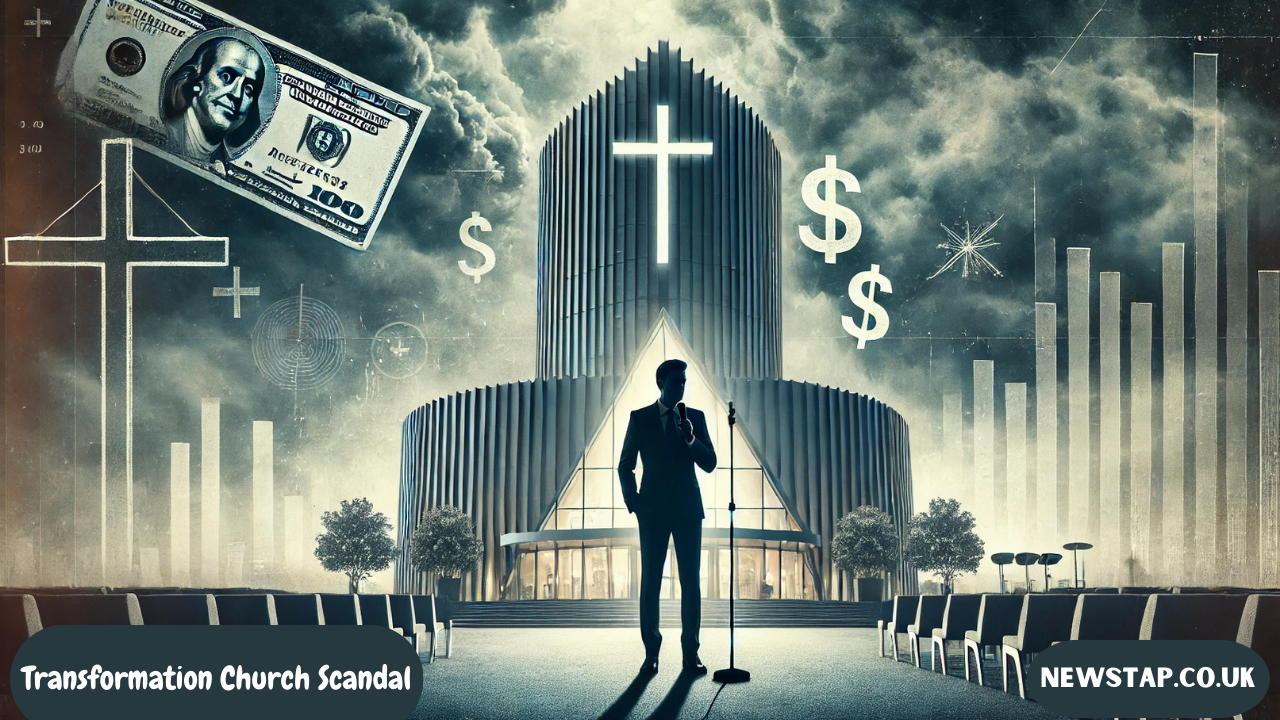Transformation Church, a prominent megachurch based in Tulsa, Oklahoma, has been at the center of several controversies over the years. Known for its massive congregation, charismatic leadership, and modern approach to worship, the church has garnered both praise and criticism. However, recent events have brought the church into the spotlight for less favorable reasons, leading to discussions surrounding a “Transformation Church scandal.” In this article, we will explore the details of the scandal, its implications, and the broader context of church scandals that have affected the public’s perception of megachurches.
The Rise of Transformation Church
Before delving into the controversy, it’s important to understand the context in which Transformation Church rose to prominence. Founded by Pastor Michael Todd in 2010, the church quickly gained traction due to its dynamic preaching, high-energy worship, and innovative approach to ministry. With a focus on reaching a younger, diverse audience, Todd’s church was seen as a fresh alternative to traditional religious institutions.
The church’s mission, which emphasizes “transforming people’s lives,” resonated with many, especially in the digital age. Transformation Church built a massive online presence, attracting viewers from around the world to its services, sermons, and podcasts. Its growth was meteoric, with the church eventually reaching thousands of members both in-person and virtually.
The Emergence of the Scandal
While Transformation Church’s rise to success seemed almost inevitable, the church soon became embroiled in a scandal that would put its reputation to the test. The controversy began to surface in 2021 and gained significant media attention as details of the alleged misconduct started to unravel.
The scandal primarily revolves around accusations of financial mismanagement, questionable spending practices, and lack of transparency. Critics argue that Transformation Church’s leadership, particularly Pastor Michael Todd, used the church’s wealth and resources for personal gain. Allegations included lavish spending on luxury items, private jets, and extravagant vacations, all funded by donations from church members.
These accusations are particularly striking given the church’s public messaging, which emphasizes humility, generosity, and serving others. Critics argue that the stark contrast between the church’s teachings and its spending habits led to questions about the integrity of its leadership. The scandal touched a nerve within the church community, as many felt that the leaders were not living according to the principles they preached.
Financial Transparency and Accountability
One of the core issues raised during the scandal is the lack of financial transparency and accountability at Transformation Church. Megachurches, especially those with large congregations and substantial donations, are often expected to maintain high standards of financial reporting and governance. However, Transformation Church’s financial records remained opaque for a significant period, fueling suspicions of mismanagement.
The church’s leadership has defended its spending practices, arguing that the resources were used to further the church’s mission and expand its reach. Pastor Todd and other leaders have maintained that the church’s growth is a result of God’s blessing, and they emphasized that much of the spending was directed toward community outreach and development projects. Nevertheless, the lack of clear financial accountability only fueled the flames of the scandal.
Public Perception and Backlash
As the scandal unfolded, public perception of Transformation Church began to shift. For many churchgoers, the news was shocking and disheartening, as they had placed their trust in the leadership. The scandal raised difficult questions about the nature of megachurches and the relationship between religious institutions and their financial operations.
For some, the scandal revealed the potential dangers of celebrity culture within the church, where pastors and church leaders become larger-than-life figures, often living in luxury and attracting massive followings. Critics pointed out the irony of a church that promotes the message of “serving others” while its leaders appear to be living extravagant lifestyles.
The backlash also came from former members and those who had been disillusioned by the church’s teachings. Some accused the leadership of exploiting the congregation’s generosity for personal gain, leading to a significant erosion of trust. Others questioned whether the church had lost sight of its original mission and was now more focused on wealth and fame than on spiritual growth.
The Response from Transformation Church Leadership
In the wake of the scandal, Pastor Michael Todd and the leadership of Transformation Church attempted to address the situation publicly. Todd issued several statements expressing regret for any misunderstanding and emphasized that the church was committed to making things right. He claimed that the church had made strides in increasing financial transparency and improving its governance.
The church also began to take steps toward rebuilding its image by focusing more on community outreach and charitable activities. This included providing support for local businesses and investing in programs that served underprivileged communities. Despite these efforts, the damage to the church’s reputation was already done, and many continued to question whether the church had truly learned from the scandal.
The Broader Impact on the Megachurch Movement
The Transformation Church scandal is not an isolated incident. In fact, it is part of a broader pattern of controversies surrounding megachurches in recent years. Many large churches have faced accusations of financial mismanagement, abuse of power, and lack of transparency. These scandals have led to increased scrutiny of the megachurch movement as a whole, with many questioning whether the model of large, profit-driven religious institutions is sustainable.
Some argue that the rise of megachurches, with their multimillion-dollar budgets and celebrity pastors, has led to a distortion of Christian values. They claim that the focus on growth, wealth, and personal success has overshadowed the core teachings of humility, service, and faith. Others, however, contend that these churches play a vital role in meeting the spiritual needs of their communities and that the actions of a few bad actors should not tarnish the entire movement.
Is Transformation Church Recovering?
While the scandal undoubtedly caused significant damage to Transformation Church’s reputation, it is unclear whether the church will be able to fully recover. Public trust takes time to rebuild, and many former members may never return to the church. However, Transformation Church’s leadership is working to mend its image by focusing on transparency, accountability, and community engagement. Whether these efforts will be enough to restore the church’s standing remains to be seen.
Frequently Asked Questions (FAQs)
1. What is the Transformation Church scandal about?
The Transformation Church scandal involves accusations of financial mismanagement, extravagant spending, and lack of transparency by the church’s leadership, particularly Pastor Michael Todd.
2. How did the scandal affect the church’s reputation?
The scandal damaged the church’s reputation, leading to public backlash and disillusionment among some churchgoers. Questions arose about the integrity of the leadership and their commitment to the values they preached.
3. What actions has Transformation Church taken in response to the scandal?
In response to the scandal, Transformation Church has attempted to improve its financial transparency and governance. Pastor Michael Todd has also emphasized the church’s commitment to community outreach and charitable efforts.
4. What are the broader implications of the scandal?
The Transformation Church scandal reflects a larger trend of controversies surrounding megachurches, particularly regarding financial transparency and the role of celebrity pastors. It raises questions about the ethical standards of large religious institutions.
5. Will the church be able to recover from the scandal?
The recovery of Transformation Church is uncertain, as rebuilding public trust takes time. The church’s efforts to improve transparency and focus on community service may help, but many former members may remain skeptical.
Also Read: Lysa TerKeurst Husband: A Story of Love, Challenges, and Healing



